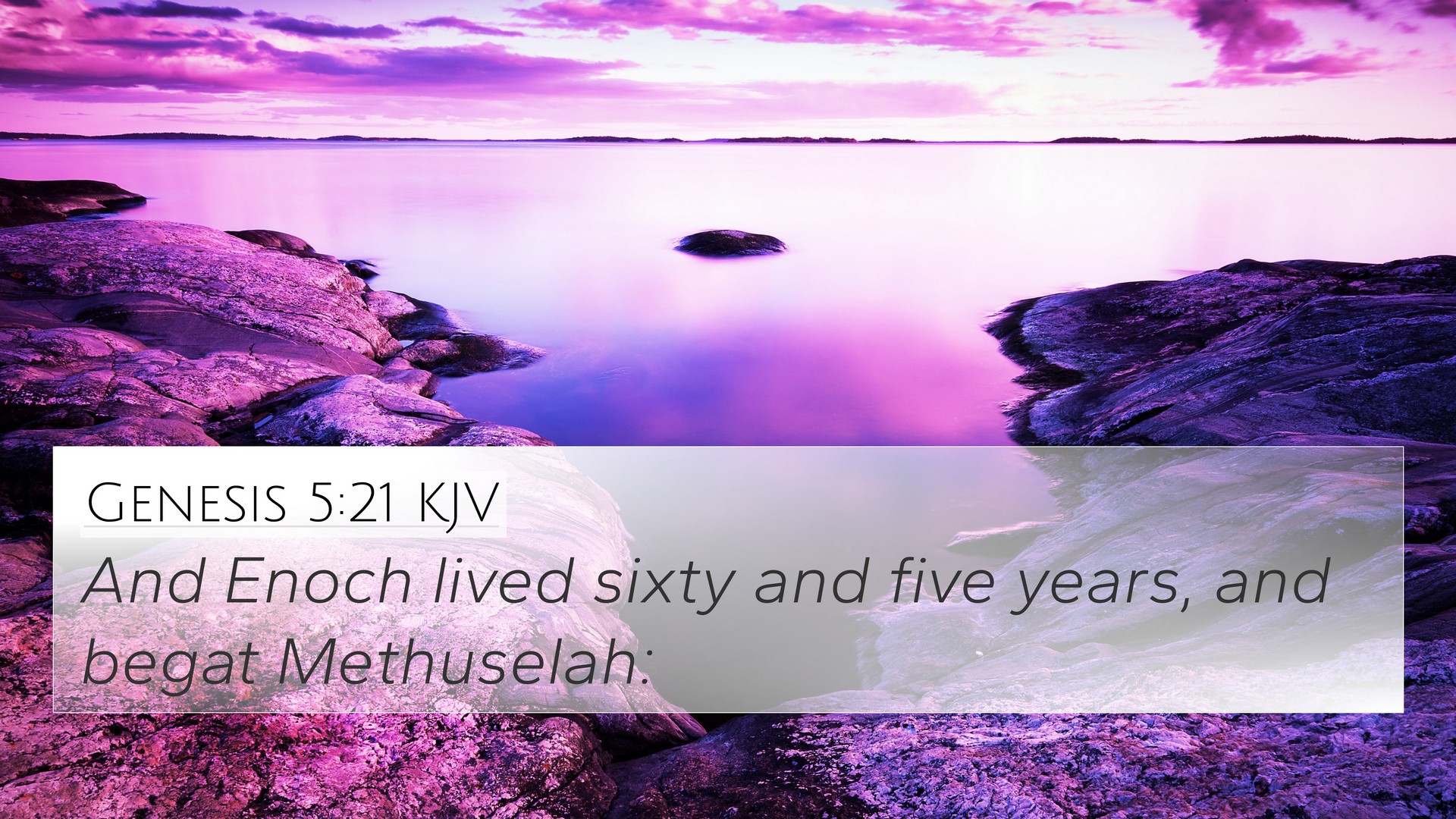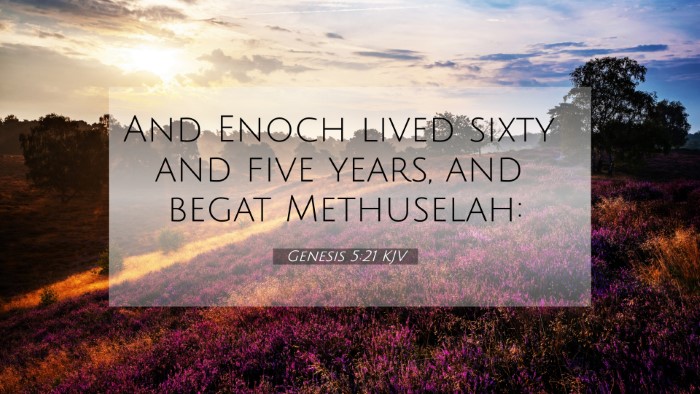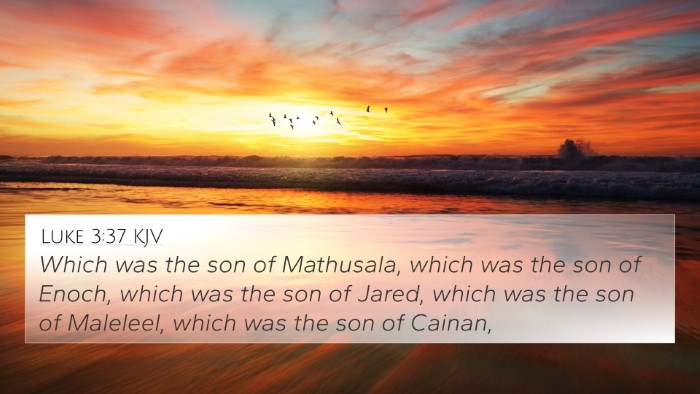Understanding Genesis 5:21
Genesis 5:21 states, "And Enoch lived sixty and five years, and begat Methuselah." This verse serves as a significant entry in the genealogical record of the early patriarchs. The following analysis draws insights from various public domain commentaries, highlighting the theological and historical implications of Enoch's life and his relationship with Methuselah.
Commentary Insights
-
Matthew Henry:
Henry observes that Enoch is noted for his piety and unique relationship with God. He lived a life of extraordinary faithfulness, as mentioned later in the scriptures. The name "Methuselah" translates to "man of the dart," possibly indicating the impending judgment associated with the great flood.
-
Albert Barnes:
Barnes emphasizes that Enoch's life serves as a pivotal point, illustrative of a man who walked consistently with God. His fathering Methuselah at the age of 65 indicates the importance of familial lines in biblical history, suggesting the significance of raising a godly generation.
-
Adam Clarke:
Clarke remarks on the longevity of the antediluvian patriots, noting the average lifespan and how Enoch stands out for his devotion. He emphasizes the potential importance of Methuselah’s name in relation to the timeline of God’s judgment through the flood.
Thematic Connections
The mention of Enoch and Methuselah opens multiple connections between Bible verses, aiding in a deeper understanding of biblical themes such as faith, obedience, and the consequences of sin. Below are identified links and parallels to Genesis 5:21:
- Hebrews 11:5: "By faith Enoch was taken away so that he did not see death..." - this emphasizes Enoch's faithfulness.
- Jude 1:14-15: References Enoch as a prophet, indicating his role in foreseeing judgment.
- Genesis 6:5: Provides a context for the spiritual climate in which Enoch lived, highlighting the wickedness that prompted God's judgment.
- Genesis 4:25: Connects Enoch's life to the earlier generations and the continuation of godly lineage.
- Romans 5:12: Discusses sin entering the world, creating a theological backdrop to the lives of Enoch and Methuselah.
- Luke 3:37-38: Lists Enoch in the genealogy of Jesus, showing his importance in the lineage of faith.
- Revelation 11:3-12: Some traditions connect the two witnesses with Enoch and Elijah, further linking their character as faithful servants of God.
Theological Significance
Enoch's life and his fathering Methuselah carry profound theological implications for understanding divine judgment, grace, and the pursuit of righteousness. The focus on Enoch's righteous walk with God suggests a model for believers as they navigate their journeys of faith.
Cross-Referencing Tools and Resources
For deeper exploration of Enoch's life and the genealogical framework in which he exists, consider utilizing various tools for cross-referencing:
- Bible Concordance: Helps in identifying terms and concepts related to Enoch.
- Bible Cross-Reference Guide: Offers insights into related verses across both Old and New Testaments.
- Cross-Reference Bible Study: Engages with thematic studies, connecting different biblical narratives.
- Bible Chain References: Tracks related verses in a progressive manner, illuminating the story of redemption.
Conclusion
As we reflect on Genesis 5:21, the life of Enoch serves as a call to faithfulness and an example of a life lived in communion with God. In examining connections between Bible verses, we appreciate the depth and continuity of God’s plan through generations.



